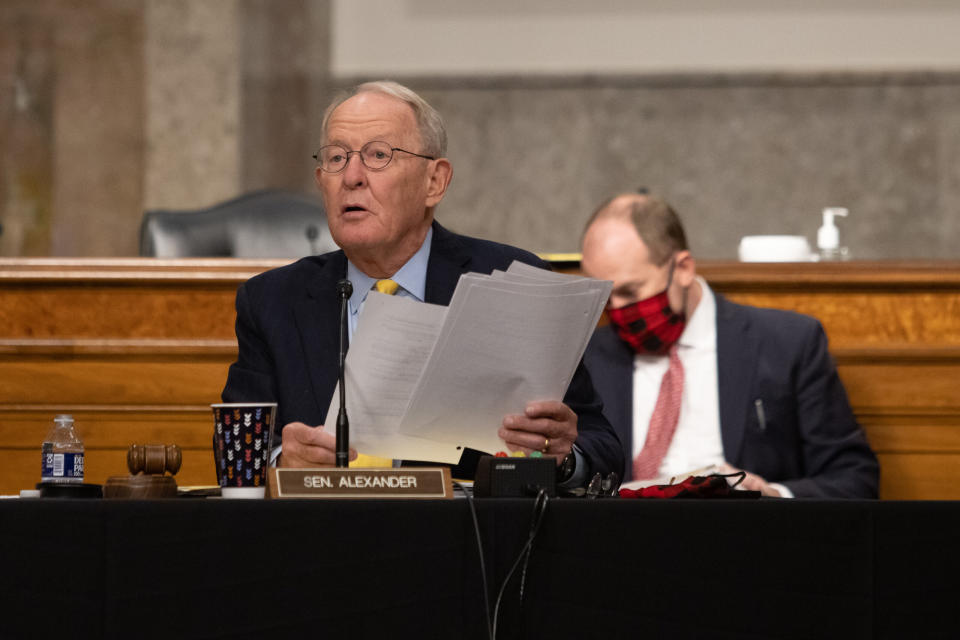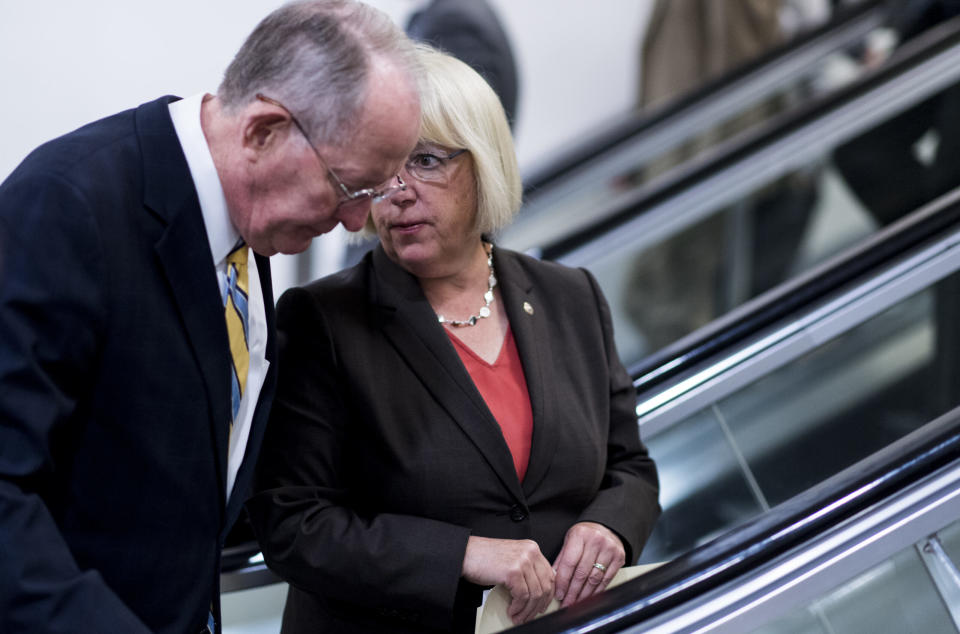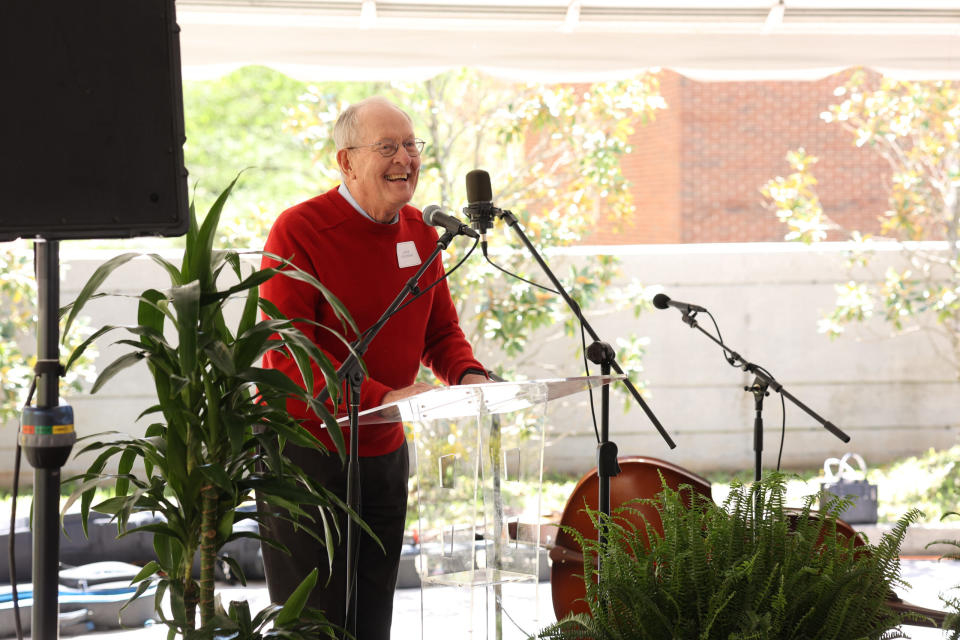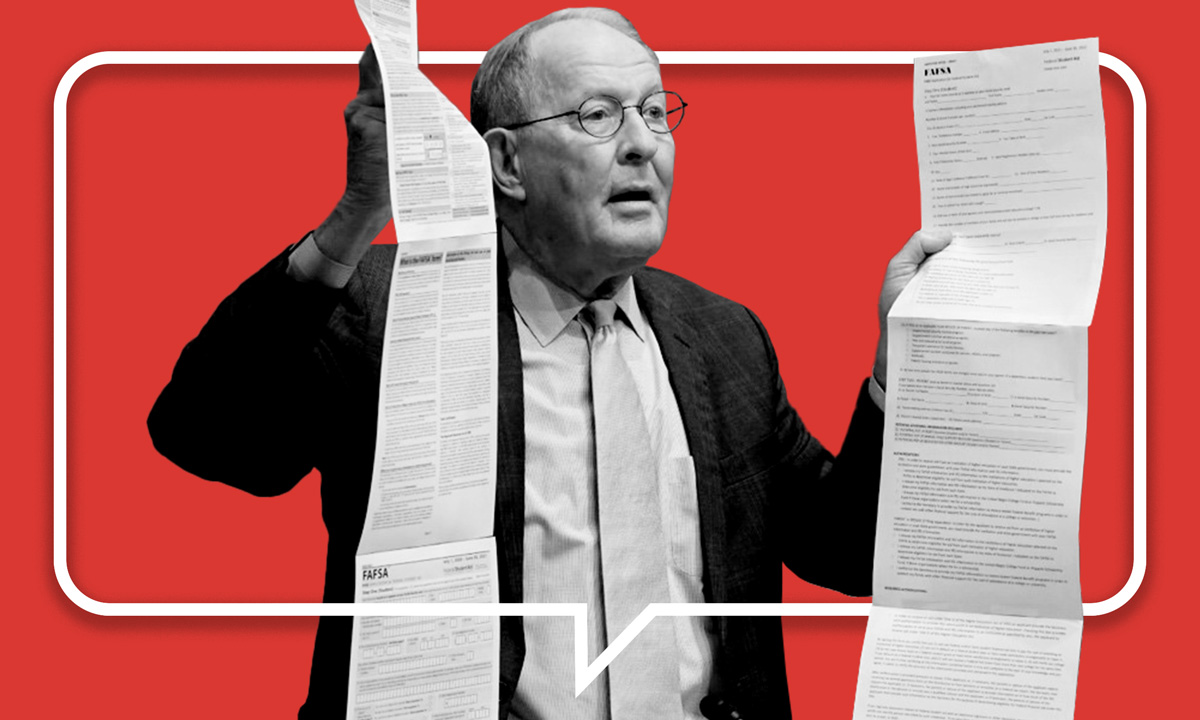The turbulent rollout of a new federal financial aid application could mean thousands of low-income students miss out on college this fall.
But one person feels especially perturbed by the botched implementation of the new Free Application for Federal Student Aid, or FAFSA.
Lamar Alexander — former governor of Tennessee, U.S. education secretary and Republican leader of the Senate education committee — thought the FAFSA Simplification Act would be his legacy.
Get stories like these delivered straight to your inbox. Sign up for The 74 Newsletter
He was so bound up with the quest to streamline the process that he became known for unfurling the 108-question paper form at press conferences.


“There are not many things that happen in Washington, D.C., that really improve the lives of 20 million American families every year,” he told The 74 last week. “This did, and once they implement it properly, it will be a great relief to these families.”
Ed Dept. Holds ‘Week of Action’ on Financial Aid, Months After Bungled Rollout
But the string of delays and errors mean that three months after the rollout, some high school seniors still don’t know if they’ll be able to afford college.
“I’m very disappointed with it,” he said. “If they spent more time figuring out how to implement FAFSA and less time forgiving student loans, they might have done better.”
Alexander, 83, served as governor of Tennessee from 1979 to 1987 and then as president of the University of Tennessee until President George H. W. Bush appointed him as education secretary. But he said it wasn’t until he was in the Senate that he understood how much of a barrier the form was to some students getting into and completing college.
In a brief interview, Alexander discussed how he would have handled the rollout differently, his ongoing work advocating for higher education in Tennessee and writing his political memoirs.
This interview has been edited for length and clarity.
The 74: For readers who don’t know the history, why was simplifying the FAFSA so important to you?
Lamar Alexander: In 2005, the third year I was a senator, a group of college presidents from Tennessee came to see me and explained that the complexity of the 108-question form was the single biggest obstacle to low-income students going to college. It was difficult to fill out and many low-income students needed to get their grandmother’s tax returns. Maybe she didn’t have them or didn’t want to give them. They talked about the verification process, which means that if you made a mistake on the form you might lose your Pell Grant in the middle of your first semester. I was too junior at that time to do much about it, but 10 years later when I became the ranking Republican on the education committee I got busy on it.
As time went on, Gov. Bill Haslam in Tennessee signed a law offering two years of free tuition for community colleges. Filling out the FAFSA was the single biggest obstacle to two years of free tuition for Tennesseans going to college. When I had a hearing on it — I can still remember the day — we had witnesses from many different points of view, and I asked four witnesses to write a letter each explaining what they would do. They looked at each other and said, “We don’t have to write four letters. We can write one. We all agree.”
Did your frustration with the process begin when you were a university president?
I didn’t pay that much attention. I didn’t really see the size of the problem. I didn’t know it affected 20 million families every year. What people forget is you have to fill this out every year, and it’s easy to make a mistake. That means it’s easy to lose your scholarship.


How much have you paid attention to the chaos that has unfolded over the past few months?
I hear about it first hand — the problems it’s causing right now with admissions officers who are having a hard time telling families how much financial aid they’ll receive and families who are having a hard time deciding what school they can attend. I’m hearing a lot about it, not so much from the news.
There’s really no excuse for it. The problem is not the law. The law was thoroughly vetted.
If you were still leading the department, how do you think you would have handled the implementation?
If McDonald’s has a new hamburger, they don’t roll it out to the whole country. They test it in a few markets, sometimes for a long time. This is too important to 20 million families just to throw a big mess out to them. That would have been the wise thing to do, to say, “OK, we’re going to gradually begin to implement this, and we’re going to test it and make sure it works. And then within a year or two more, we’ll make it available to all 20 million families.”
I’m very disappointed with it. If they spent more time figuring out how to implement FAFSA and less time forgiving student loans, they might have done better.
74 Interview: Sen. Lamar Alexander on Finally Fixing College Financial Aid Form, Being Ready to Advise Biden’s Ed Secretary Pick and $900B Relief Bill
Do you miss being in the U.S. Senate?
I miss my friends, but I had 18 years. That’s long enough, and I’ve moved on to other things.
When I was in the Senate, I would tell people, “It’s hard to get here. It’s hard to stay here, and while you’re here you might as well try to accomplish something. And you can’t accomplish anything in the Senate unless you get 60 votes.” I learned how to count in the Maryville City Schools. So you have to work across the aisle if you want to get a result. There’s no reason to run if all you want to do is make a speech. You can do that at home.


How are you spending your time now?
I’m on the Vanderbilt University Board of Trust. Number two, I’m helping the University of Tennessee create the Howard Baker School of Public Policy, which was just officially dedicated. And number three, I’m helping Maryville College, in my hometown, create a new science center. It will have an environmental education program, which fits. We’re right in the foothills of the Great Smoky Mountains, which is one of the most biodiverse places in the world. I’ve gotten drawn back into higher education without trying.
I’m also writing a memoir. I’m about finished with that. I kept a diary, so there are lots of interesting stories, interesting people, lots of things that I got to work on that didn’t make much news — like fixing FAFSA — but helped a lot of people.
